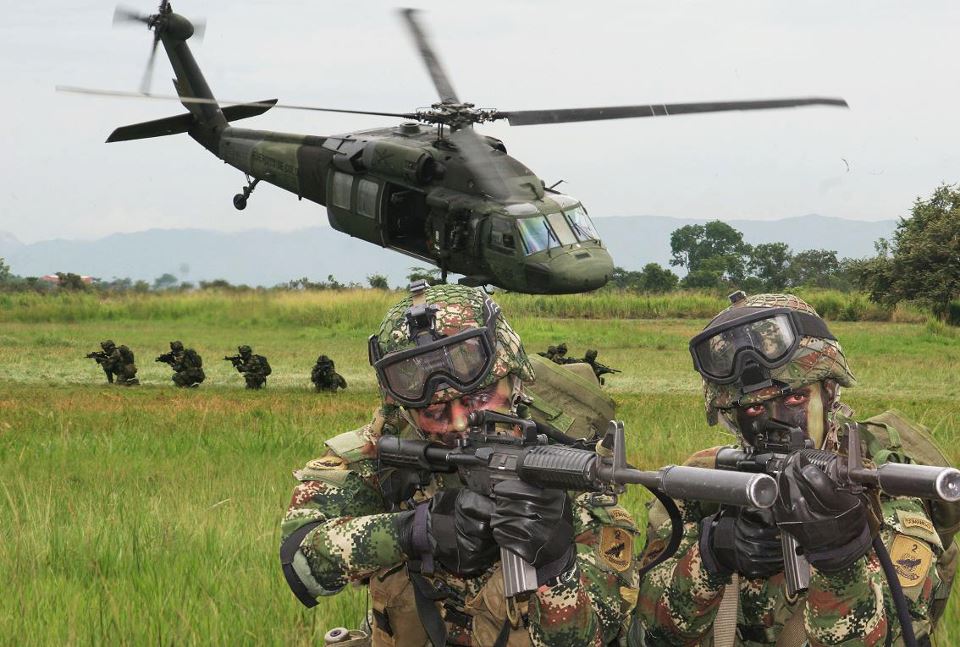With U.S. foreign policy of the past decade scrutinized so heavily, it’s easy to forget the success stories. In our own near-abroad, Colombia has been the benefactor of one of the most bipartisan and direct foreign assistance campaigns in recent memory. Plan Colombia was initiated under Bill Clinton’s administration at a time when fears of the Colombian national apparatus descending into a failed narco-state weren’t far from the realm of possibility. The Revolutionary Armed Forces of Colombia, or the FARC, provided much of the internal distress during this time through extortion, kidnappings and illegal drug trade. Today though, the value of the illicit drug market in Columbia has shrunk by 40 percent since 2008, the FARC’s reserves of fighters have been cut to less than half of their 1999 levels and the FARC has signed a ceasefire accord as of June 2016. Colombian President Juan Santos, with indispensable U.S. aid, was close to ending a 52 year war. That is, until the peace deal went to referendum and failed to pass by a slim margin.
I won’t waste the time to equate this to Brexit, Donald Trump or any other populist movement. If that’s what you’re after, there are plenty of pundits already on that trail of thought. Instead, I want to illustrate a simple point: the rejection of this deal is not necessarily indicative of what Colombians actually affected by the conflict wanted, and certainly isn’t what they needed.
Many of the Colombians who voted “no” argue that the peace deal is too lenient on FARC fighters who committed atrocities and fear that war criminals will be legitimized by the government as a political party, rather than held accountable. This is a legitimate complaint. After all, under the deal, FARC members will submit confessions for their term of service and only face a period of five to eight years of restricted liberties. Only the most egregious violations will be prosecuted further. However the reasoning behind this is more nuanced than the “no” camp makes it out to be. President Santos’ administration has taken this position in order to eliminate a cycle of retribution that has plagued Colombia for decades. Going back to La Violencia of the mid-20th century, a tit-for-tat escalation between left and right wings groups in Colombia has proven unending.
Additionally, the atrocities have been far from one-sided. One instance showing that the Colombian government isn’t blameless in this conflict is the “false positives scandals.” During this incident, Colombian forces killed poor and mentally disabled civilians in order to frame them as FARC combatants and bolster the numbers of reported enemy killed. The casualties in this scandal highlight something important. The main victims of this conflict are not the FARC or the Colombian government, rather, they are the poor and already disenfranchised peasants in rural parts of the country.
According to La Nueva Televisora del Sur (TeleSUR), a Latin American news agency, the “no” campaign was led by former president Alvaro Uribe and urban elites, well-insulated from the violence of the past decade. Indeed, when looking at this map of Colombia’s vote distribution by the BBC, inland provinces outside of densely forested, FARC-controlled territory are shown to have generally voted against the peace deal. Chocó, home to the Bojayá Massacre of 2002 in which 119 people were killed by FARC guerrillas, is a province that was hit especially hard by this conflict. Despite their history, the BBC reported that 96 percent of Bojayá and 80 percent of Chocó voted in favor of peace. The issue that many are noticing is that the “no” votes were from a portion of the population that hasn’t been suffering the FARC incursion to the same degree. Those who voted “yes” had a brief glimpse of the light at the end of the tunnel.
In the wake of the referendum, both President Santos and FARC leader Rodrigo Londoño, better known by his alias Timochenko, have indicated that their first priority is going back to Havana for more negotiations. Unfortunately for the negotiators, the current ceasefire agreement only holds until the end of October. After then, the situation becomes much more tentative.
Kyle Rempfer is a sophomore government & politics and Russian major. He can be reached at krempfer@terpmail.umd.edu.



